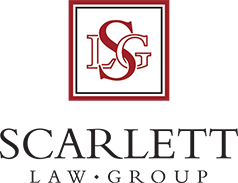Information collected by the California Department of Public Health says there were 17,528 people requiring hospital care and a further 2,912 adult fatalities from traumatic brain injuries in 2020. Traumatic brain injuries occur following an accident, and the aftermath involves the loss of typical brain functionality. This type of injury can have a serious impact on a person’s life as well as on loved ones. If you or somebody you love has suffered a traumatic brain injury, continue reading to find out what you can do.
Insights into Traumatic Brain Injuries
There are three primary types of traumatic brain injury including mild/concussed, moderate, and severe. Anyone at any age can suffer a traumatic brain injury, but the Centre for Disease Control and Prevention (CDC) believes that the following groups are more prone:
- People in rural areas.
- People at detention or correctional facilities.
- Homeless people.
- Ethnic minorities.
- Survivors of domestic abuse.
Traumatic brain injuries can be sustained by any damage to the head, but the leading causes are falls, motor vehicle crashes, and failed firearm-related suicides.
Symptoms of Traumatic Brain Injuries
All levels of traumatic brain injury can cause pain including nausea, headaches, loss of balance, seizures, and numbness. There may also be behavioral and mental symptoms including:
- Erratic mood changes.
- Concentration or memory problems.
- Trouble sleeping or sleeping too much.
- Slurred speech.
- Falling into a coma.
After suffering a traumatic brain injury, there will most likely be life changes to make. For example, working may not be an option, which would cause financial strain. Enjoyable activities may not be a possibility, and it may be a challenge to carry out simple care tasks.
How Traumatic Brain Injuries Impact Others
Even though this type of devastating injury can carry severe consequences for the victim, it has a way of impacting loved ones. For example, children may suffer emotional issues, be without a parental figure, or appear terrified at how a parent looks. As well as this, partners struggle because there’s no longer another person to share the workload of life with, and they may have to provide basic care. Other people in the family may also be impacted, especially if they have to help out with care or other tasks to make life easier for the family.
Claiming Compensation for a Traumatic Brain Injury
If anyone in the family suffers from a traumatic brain injury, it can cause significant damage – both financially and emotionally. If the traumatic brain injury can be traced back to an accident, there’s a strong chance of receiving compensation to cover physical and non-physical expenses.
To claim compensation, you need to prove 100% that someone else was to blame for the accident, and there has to be evidence that the traumatic brain injury was caused by the accident. Therefore, the first thing you’ll need to do is collect any medical records and speak to witnesses, and then contact our team of experts to take care of the rest.
To stand the best chance of receiving the maximum reasonable compensation amount, make sure you contact Scarlett Law Group at the following office:
536 Pacific Avenue, San Francisco, CA 94133.
Or call now for a free consultation on (415) 352-6264.

